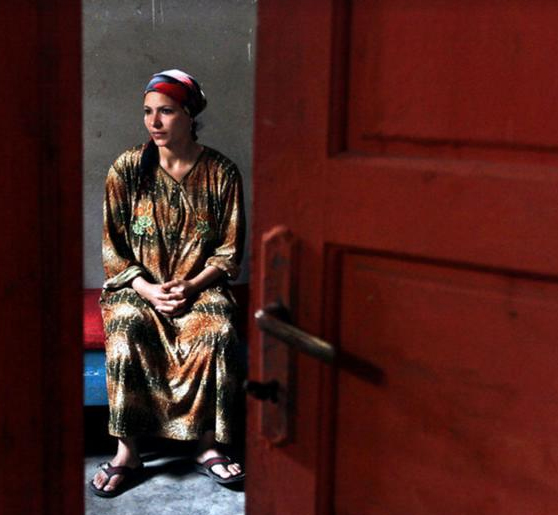Yesterday, 11 October, the world marked the International Day of the Girl Child. Watani explores the situation of women and girls in Egypt.
Marginalisation, injustice, discrimination, belittling and intolerable burdens; all are words that sum up the conditions of a majority of Egyptian women. Is it true, or is it a figment of women’s imagination? And if true, when, where and how does discrimination begin? Do some families prefer sons to daughters? Who is responsible for the state of affairs—is it cultural, social, educational, or the role played by and expectations of families?
Watani has been looking for answers to some of these questions.
Liberal past gives way to repressive times
“In ancient times Egyptian women enjoyed a high rank in the community. One can think of Hatchepsut who ruled Egypt as a pharaoh in the 15th century BC, Cleopatra VII who was queen of Egypt in the first BC century, and Shagarat al-Durr, who in the 13th century was the first Muslim woman in Egyptian and Islamic history to become a monarch,” Egyptian historian and researcher Muhammad Rahil told Watani. “Throughout Egyptian history women were held in high esteem as valued members of the community and, in special cases, played a role in State affairs.
Mr Rahil believes that historiography lies behind the idea of the dominant male. This, he says, was what put women at a disadvantage and made them feel second-rate. “Most historians were men and emphasised the ruler and other male achievements, placing women in the shade,” he explains. “Throughout a good part of history, societies were male-dominated and women were suppressed into believing they were created to serve their men and families. It was natural that women would feed their daughters such concepts and bring up their sons to this idea, the end result being generations of domineering men and submissive women. “Egyptians have a word to describe this sort of chauvinistic male character: Si-Sayed. Si is a colloquial form of address meaning ‘Mr’, and ‘al-Sayed’ is literal for ‘the master’. Si-Sayed is one of Nobel Laureate Naguib Mahfouz’s famous characters: he embodies the characteristics of the Egyptian male during the early 20th century before women emancipation. Although such conditions have largely changed since then as a result of a major shift in social norms, the novel still represents the real character of the typical Egyptian man, even after being polished by so-claimed modernity.”
Turning point: revolutions
According to Mr Rahil, mainstream Egyptian women prefer to give birth to boys, believing that this elevates their image in society. A woman wants to be called ‘Umm’ (mother) of her son. The son can give her the power and, in many cases, the dignity she lacks. So she sets about to spoil him and teach him to exercise authority over other women—but not over her—hoping to gain power through him. Egyptian women also put trust in their sons’ inheriting their fathers’ land or business.
“The turning point for highlighting women’s role in society has been revolution,” Mr Rahil says, “The 1919 Revolution saw the first initiative by Egypt’s women to participate in public activity, in this case the street protests. Led by Hoda Shaarawi and other female figures who later spearheaded the feminist movement in Egypt, women became visible and gained the right to education and jobs—fields that had been exclusive to men. With the 1952 Revolution women gained political rights and equality with men in jobs and, in the wake of the 25 January 2011 uprising and 30 June 2013 Revolution, secured political prestige. The current Parliament boasts an unprecedented number of women MPs.”
Mr Rahil says that the interpretation of Islamic religion led to women losing their rights. “This is the outcome of fatwas (Islamic legal opinion) issued by sheikhs who stress a man’s right to dominate over a women leaves Muslims with the sense that men are the custodians.”
More emotional
“A woman is generally more emotional than a man, and gives precedence to]emotions over intellect; this in many cases makes her lose her battles against men,” consultant psychologist Gamal Froize told Watani. “This is why women end up acutely feeling injustice and psychological pressure, which accordingly leads to external behaviour in the form of anger, suppression, and depression and can give rise to illness. Over and above, women go through hormonal changes, then marriage, pregnancy, and giving birth. All this generates feelings of crushing burdens, injustice and inferiority.
“All the same, there are women who have risen above those feelings and become strong, self-confident and independent.” Worth noting is that many modern women today see Dr Froize’s opinion as chauvinistic and biased.
A question of awareness
As for discrimination against girls within their families, both Dr Samia Khedr, professor of sociology at Cairo University, and MP Marguerite Azer, agree that a great share of responsibility for this lies on the shoulders of mothers, especially when it concerns the notion of manhood and womanhood in society.
“Sadly, some mothers discriminate in favour of their sons who, in their belief, are the future breadwinners and the men who will be responsible for their families. They raise the boys to believe they are more important than the girls,” Ms Azer says. The son’s faults are acceptable, while his sister is always under a microscope. This kind of bringing-up results in a macho man nestling inside the innermost and minds of boys, while creating a defeated and belittled self-view in the minds of girls that affects their future lives, in turn maintaining society as a ‘male’ one.
“This definitely leads to the culture of inequality and absence of respect for women we have today,” Ms Azer says.
“The education and culture of a mother in any family help daughters find justification and secure their right to education, jobs and freely choosing the right life partner,” Dr Khedr says. “These better-aware mothers can protect their daughters from abhorrent cultural traditions that might prevent them completing an education like their brothers, and from such social practices as female circumcision. This kind of girl will later bring up good male and female citizens.”
Equality at home
As for raising boys without favouritism or a macho attitude towards women, family affairs expert Dr Nader Onsy, told Watani: “It is very important for every mother to encourage her son to share his sister’s responsibilities and duties in the home. Why not teach sons to cook and wash dishes like their sisters? This would encourage feelings of equality and family values. This way of raising males and females would create a future husband and wife who share responsibilities equally without confusion and with confidence.”
Dr Salwa Maurice Saber, headmistress of Ramses College for Girls, says that to raise a girl with a strong personality we should educate her, both at home and in school, to express her opinions but in a respectful and decent way.
“A girl usually learns respect and consideration from her mother and teachers. If she wishes to achieve success in any job, it will depend on her character and her ability to cope with difficulties without crying or asking for help,” Dr Saber says. “She should determine her targets in life with confidence.”
Watani International
12 October 2016

















